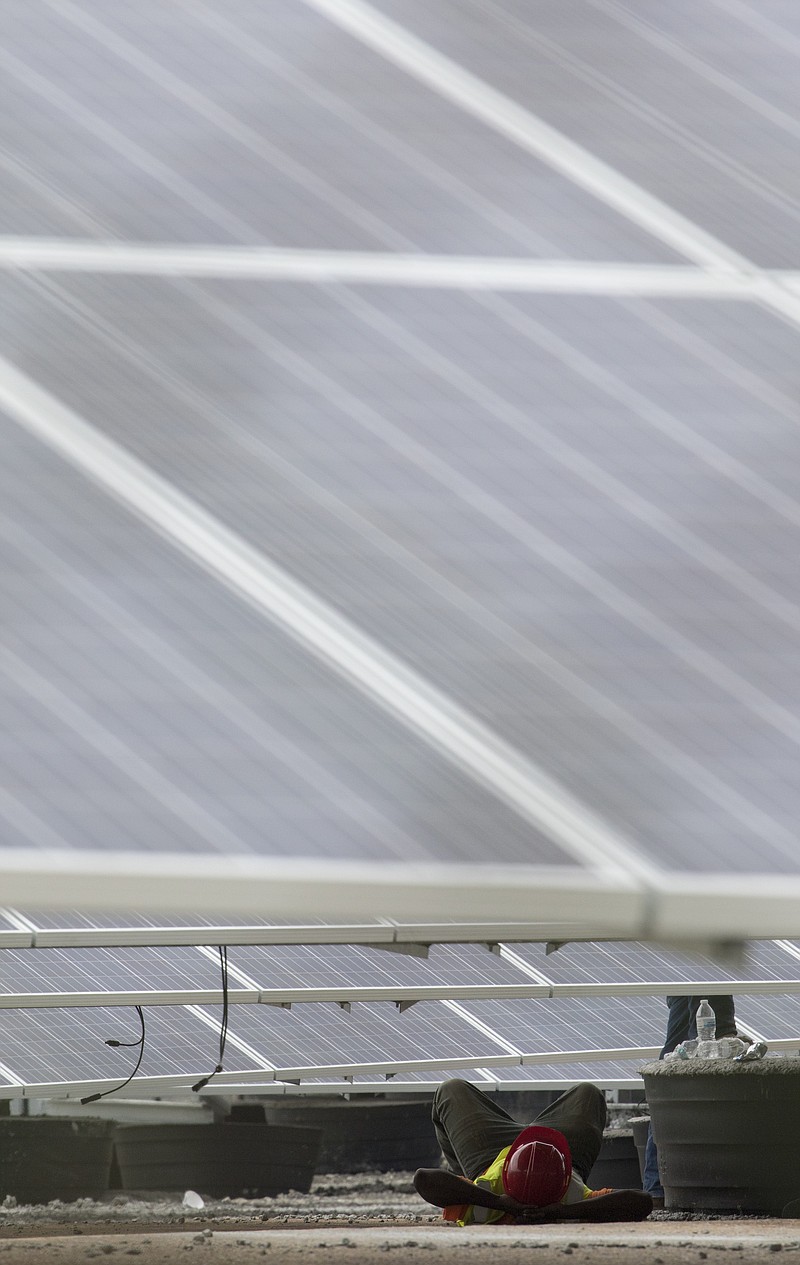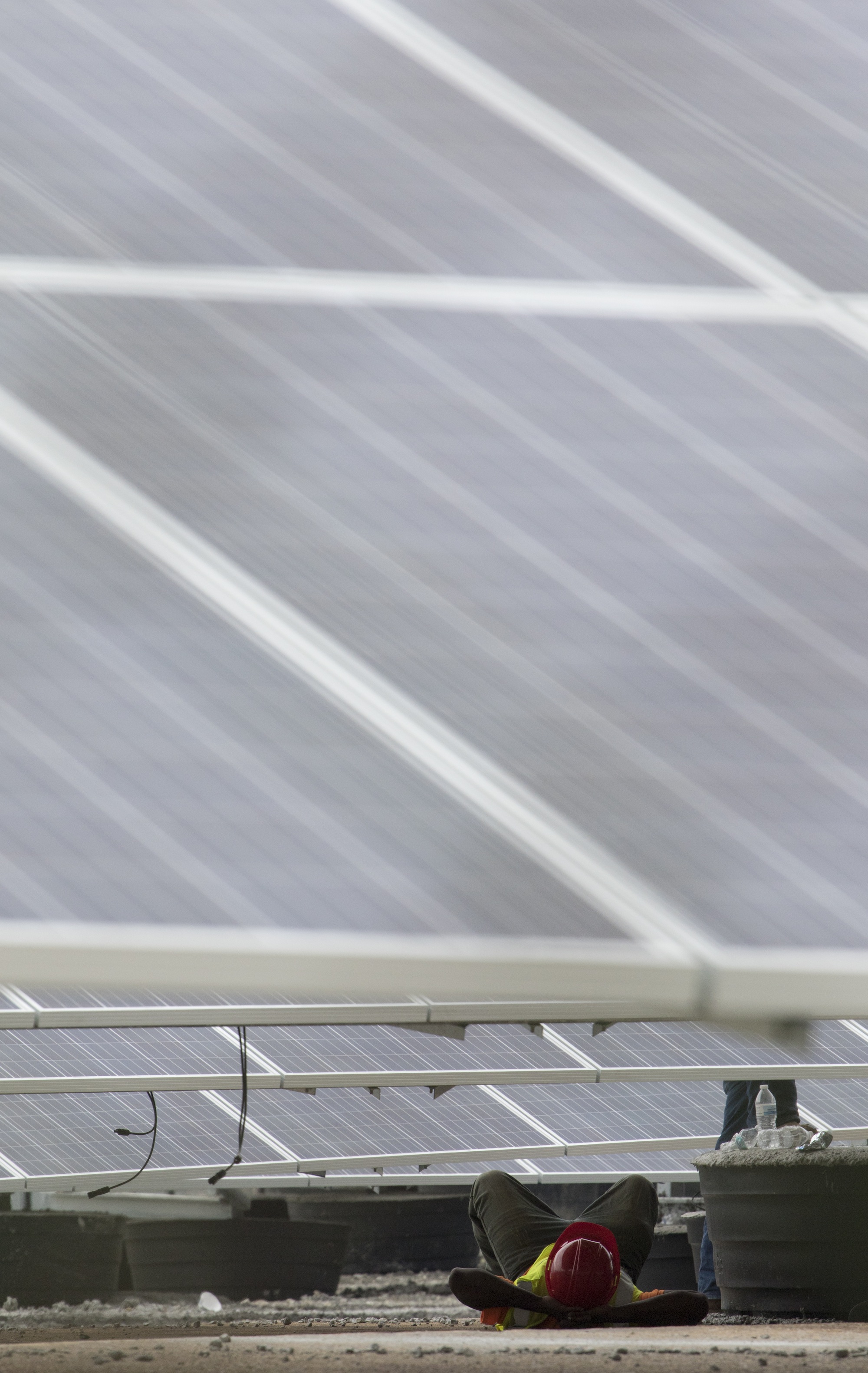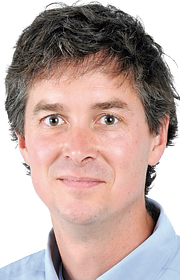Some 15 years ago, after reading a review from George Will, I picked up Matthew Scully's "Dominion," a haunting nonfiction account of animal cruelty inside factory farming and the theological reasons for fighting it.
The book hit home. Within weeks, my wife (she read it, too) and I shifted to a vegetarian diet. We haven't looked back.
Over the years, other books had powerful effects, yet no book so 180-degree shocked my lifestyle - carnivore to complete vegetarian - as Scully's "Dominion."
Until now.
This summer I read, then re-read, Bill McKibben's "Falter." His premise? That climate change has the power to so alter the fabric of earth's ecologies and economies that our existence as human beings has already begun to stumble, or falter.
"Between ecological destruction and technological hubris, the human experiment is now in question," he writes. "The stakes feel very high, and the odds very long, and the trends very ominous."
McKibben, a Middlebury College scholar and winner of the Right Livelihood Prize, is no Chicken Little. One of the first environmentalists 30 years ago to sound an alarm, he writes with clarity; of all today's voices, I trust his the most.
Before his book, I'd kept climate change at a safe distance, believing someone somewhere else would fix it.
That's not happening.
Did you know that there are only half as many wild animals on the planet as in 1970?
That a child born today may never see a coral reef?
That the oceans are acidifying? Insect populations plummeting? Food crops diminishing?
IF YOU GO
The Tennessee Valley Energy Democracy Tour begins at 6 p.m. on Tuesday, Aug. 13, at the South Chattanooga Recreation Center on West 40th Street.
The troubles keep marching in. Fires, floods, droughts, extinctions, storms, sea level rise. (Will the Miami Dolphins have a team in 2040?) It's all here in his book, all of it connected to seven devastating words:
We are burning too many fossil fuels.
"By most accounts, we've used more energy and resources during the last thirty five years than in all of human history that came before," McKibben writes.
McKibben, writing as neither optimist nor pessimist but "realist," is not dour. Part of "Falter" is a celebration of all that humans have done in our short time on earth. (Other parts discuss Ayn Rand, asphalt shingles, artificial intelligence. The book is robust.) To wake up to climate change is to equally wake up to the storehouse of beauty all around us. We suddenly savor - and grieve, and rage, and shudder - at all we may lose.
"Changing something as fundamental as the composition of the atmosphere, and hence the heat balance of the planet, is certain to trigger all manner of horror, and we shouldn't shy away from it," he writes.
View other columns by David Cook
Our global economy has intertwined everything; as the planet warms, there is no place to hide. As author Paul Hawken wrote years ago: every living system on earth is in decline. (Read his list of climate change solutions at drawdown.org.)
"We're simply so big, and moving so fast, that every decision carries enormous risk," McKibben writes. "No Roman emperor could change the pH of the oceans, but we've managed that trick in short order."
McKibben discusses the way a handful of men - oil company executives - made decisions years ago to suppress climate change science despite knowing the risk of fossil fuels.
We have begun to reap what we've sowed. What they've sowed.
"There are many ways to be poorer, and we're going to find out all of them," he writes.
Perhaps this coming poverty holds the medicine we need. If we picture climate change as a 9/11-style emergency, and transform to a carbon-free society, then, along the way, we could reignite community, foster an end to loneliness, create better diets, healthier economies, a wiser relationship to the land and animals while redefining consumption, patriotism and energy. (In a future column, I'll discuss the link between fossil fuels and mass shootings.)
The window for solutions is getting smaller, McKibben says; we must engage and act.
He advocates two solutions - "technologies of maturity" - above all else:
Solar power.
Nonviolent resistance.
"Technologies less of expansion than of repair, less of growth than of consolidation, less of disruption than of healing," he writes.
It is important to catalog and name the solutions, people and groups at work here in Hamilton County. That's part of my work going forward.
Like Sandy Kurtz.
Kurtz is a tireless and tough environmentalist, a Hamilton County version of McKibben. And she's inviting you to an important discussion.
This Tuesday, the Tennessee Valley Energy Democracy Tour will meet in St. Elmo. Sponsored by several groups, including green/spaces, the Sierra Club and Interfaith Power and Light, the public is invited to discuss ways to make our energy systems more just and sustainable.
"What is your vision for our energy future?" Kurtz asked.
Everything depends on our answer.
David Cook writes a Sunday column and can be reached at dcook@timesfreepress.com.


